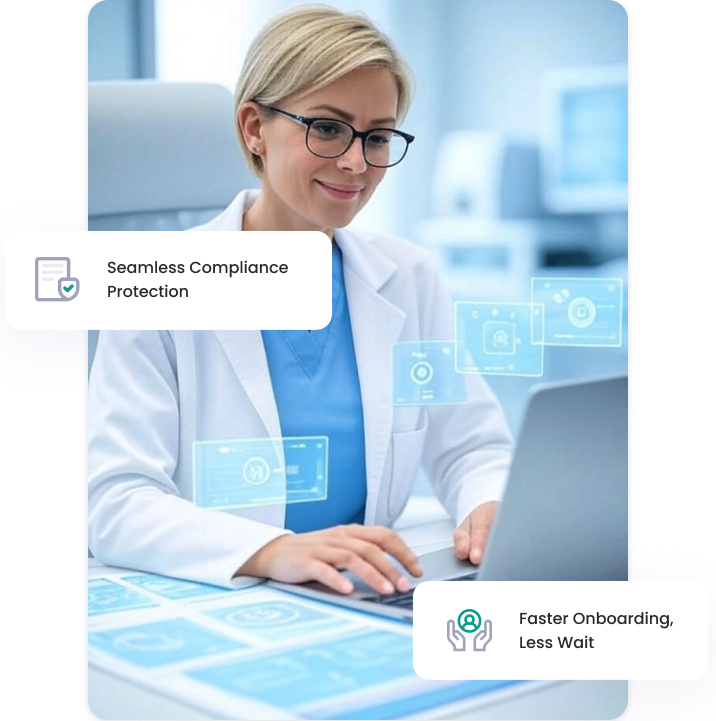Provider Credentialing Services That Simplify Compliance
Credentialing delays can lead to missed reimbursements, compliance risks, and operational inefficiencies. SolvEdge simplifies the credentialing process with end-to-end services, including CAQH profile updates, commercial payer enrollment, and state licensing. Our solutions ensure your practice remains compliant while you focus on delivering exceptional patient care.
- Streamline Enrollment
- Reduce Onboarding Time
- Maximize Reimbursements





